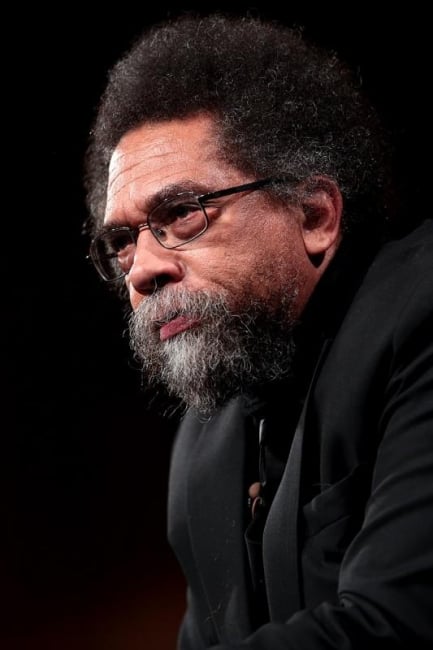You have /5 articles left.
Sign up for a free account or log in.

Cornel West
Wikipedia
Cornel West is once again leaving one institution for another, and he's not exactly going for bonus points at the place he's leaving, Harvard University.
West, who has taught at Harvard's divinity school, is leaving for the Union Theological Seminary, in New York City, where he has previously taught. He will hold the Dietrich Bonhoeffer Chair.
That news has been known since March, but West on Tuesday posted his resignation letter to Harvard in a tweet to offer his view of why he was leaving.
"This is my candid letter of resignation to my Harvard Dean. I try to tell the unvarnished truth about the decadence in our market-driven universities! Let us bear witness against this spiritual rot!" he said in introducing his resignation letter.
Harvard isn't commenting on the letter.
"When I arrived four years ago -- with a salary less than what I received 15 years earlier and with no tenure status after being a University Professor at Harvard and Princeton -- I hoped and prayed I could still end my career with some semblance of intellectual intensity and personal respect," West wrote. "How wrong I was! With a few glorious and glaring exceptions, the shadow of Jim Crow was cast in its new glittering form expressed in the language of superficial diversity."
When West announced his departure in March, he criticized Harvard for not offering him tenure. He commented on the controversy in his resignation letter.
"To witness a faculty enthusiastically support a candidate for tenure then timidly defer to a rejection based on the Harvard administration's hostility to the Palestinian cause was disgusting," he said. "We all knew the mendacious reasons given had nothing to do with academic standards … Even my good friends in the Afro-American and African Studies Department were paralyzed, given their close relations to the administration."
He closed with a complaint that he received only two notes when his mother died recently.
"Any ordinary announcement about a lecture, award or professional advancement receives about 20 replies," he wrote. "This kind of narcissistic academic professionalism, cowardly deference to the anti-Palestinian prejudices of the Harvard administration and indifference to my Mother's death constitute an intellectual and spiritual bankruptcy of deep depths. In my case, a serious commitment to Veritas requires resignation -- with precious memories but absolutely no regrets!"
West left a Harvard position, with tenure, in 2002 amid a series of disputes with Lawrence Summers, then president of the university. He went to Princeton University, and then to the Union Theological Seminary.
His standing in academe has been questioned (and not just by those on the right). Michael Eric Dyson, at the time a professor at Georgetown University, wrote a long critique of him in 2015. It was called "What happened to America's most exciting Black scholar?"
Scott McLemee, a columnist for Inside Higher Ed, has also offered criticism.
But West was praised when he collaborated on an essay with a noted conservative in academe, Robert P. George, the George McCormick Professor of Jurisprudence at Princeton University, in 2017, in the wake of an incident at Middlebury College, where students prevented an invited speaker from talking and a professor was physically attacked by some who were protesting the invitation.
"It is all too common these days for people to try to immunize from criticism opinions that happen to be dominant in their particular communities," they wrote in the essay. "Sometimes this is done by questioning the motives and thus stigmatizing those who dissent from prevailing opinions; or by disrupting their presentations; or by demanding that they be excluded from campus or, if they have already been invited, disinvited.”
The essay continued, “Students and faculty members turn their backs on speakers whose opinions they don’t like or simply walk out and refuse to listen to those whose convictions offend their values. Of course, the right to peacefully protest, including on campuses, is sacrosanct. But before exercising that right, each of us should ask: Might it not be better to listen respectfully and try to learn from a speaker with whom I disagree? Might it better serve the cause of truth seeking to engage the speaker in frank civil discussion?”
They invited people to sign a petition based on those ideas, and thousands did so.
Likewise, many academics posted their admiration for him on Twitter Tuesday. David Palumbo-Liu, professor of comparative literature at Stanford University, wrote, "Excellent letter, Brother Cornel. Sad that you had to endure this, sad that Harvard students have lost the chance to be in conversation with you."




